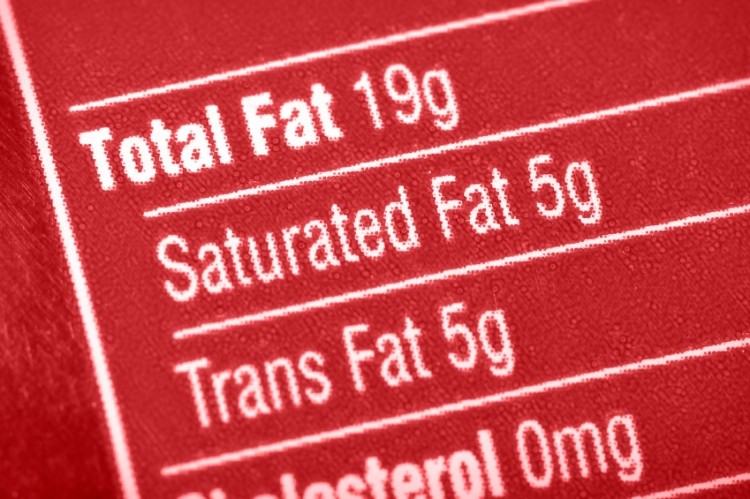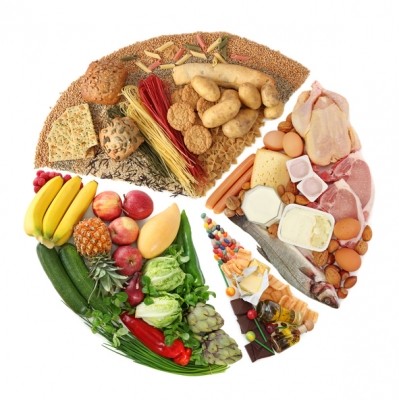'Food science has been 'corrupted by commercial influences,' slam authors
Government guidelines for low-fat diet 'disastrous' for health: report

The report’s author’s believed that the emphasis on low-fat diets was not tackling Britain’s rising obesity rates and placed the blame firmly on snacking between meals as the primary cause.
The highly-critical report, produced by The National Obesity Forum (NOF) and the Public Health Collaboration, called for a “major overhaul” of current dietary guidelines.
Claiming that ‘Eating fat does not make you fat,’ they recommended that guidelines for weight loss should include an ‘ad libitum’ approach to low refined carbohydrates.
‘Real foods’ that included meat, fish and dairy, and high-fat, healthy foods such as avocados were also considered as an acceptable approach for preventing weight gain and aiding weight loss.
The report also stated that saturated fat did not cause heart disease and identified full fat dairy products as likely to protect the heart.
“The most natural and nutritious foods available – meat, fish, eggs, nuts, seeds, olive, avocados – all contain saturated fat,” the report said.
“The continued demonisation of omnipresent natural fat drives people away from highly nourishing, wholesome and health promoting foods.”
Processed foods labelled ‘low fat’, ‘lite’, ‘low cholesterol’ or “proven to lower cholesterol” should be avoided and a limit should be placed on starchy and refined carbohydrates to prevent and reverse type 2 diabetes.
The message on sugar was generally similar, as the report welcomed recent World Health Organisation (WHO) recommendations that stated public health messaging should emphasise that sugar plays no role in a healthy diet.
“We recommend that food labelling on added sugar should be recorded as number of teaspoons,” said the report.
“This enables consumers to make more informed decisions when purchasing products in the supermarket.”
Industry influence

The authors of the report saved the bulk of criticism to the science of food. Research studies designed to provide scientific credibility had been ‘corrupted by commercial influences. The undue influence of the food industry on official guideline bodies and politicians has posed a significant threat to public health.'
The report’s authors believed that the real scandal, at great expense to public health, was that academics, institutions and journals whose primary responsibility was to patients and scientific integrity had at times colluded with industry for financial gain.
Naturally, the report has caused a huge backlash among the scientific community.
Speaking on BBC’s Today programme on Radio 4 this morning (23 May), Dr Susan Jebb, chief advisor to the UK Government on obesity said: “Quite simply, we are eating too much. One of the things that is making many scientists cross with this report is it cherry picks the odd study here and there.”
“The overwhelming evidence taken from systematic reviews does not in any way support the assertion that you should be eating more saturated fat.”
The report's conclusions were also criticised by Public Health England, the body that advises the UK government on health policy. Its chief nutritionist Dr Alison Tedstone, said: “In the face of all the evidence, calling for people to eat more fat, cut out carbs and ignore calories is irresponsible.
“Unlike this opinion piece, our independent experts review all the available evidence – often thousands of scientific papers – run full-scale consultations and go to great lengths to ensure no bias.”
“International health organisations agree that too much saturated fat raises cholesterol, increasing the risk of heart disease and obesity is caused by consistently consuming too many calories.”
In response, consultant cardiologist and founding member of the Public Health Collaboration, Dr Aseem Malhotra, said the report used recent, high quality evidence to support its findings.
He cited a study performed by Cambridge Medical Research Council that looked at the association of dietary, circulating, and supplement fatty acids with coronary risk.
“We’re not saying you should consume as much saturated fat as you like,” he said. “We’re saying that saturated fat does not cause heart disease. We’ve got multiple randomised control trials to support this.”
























